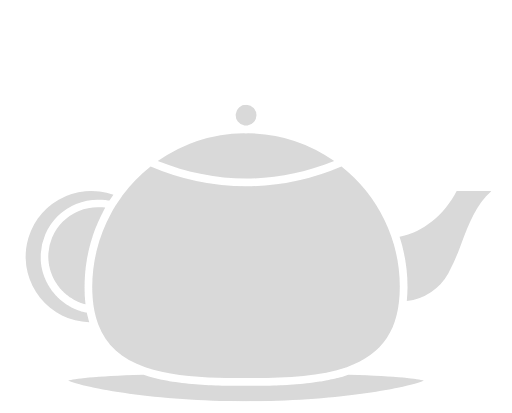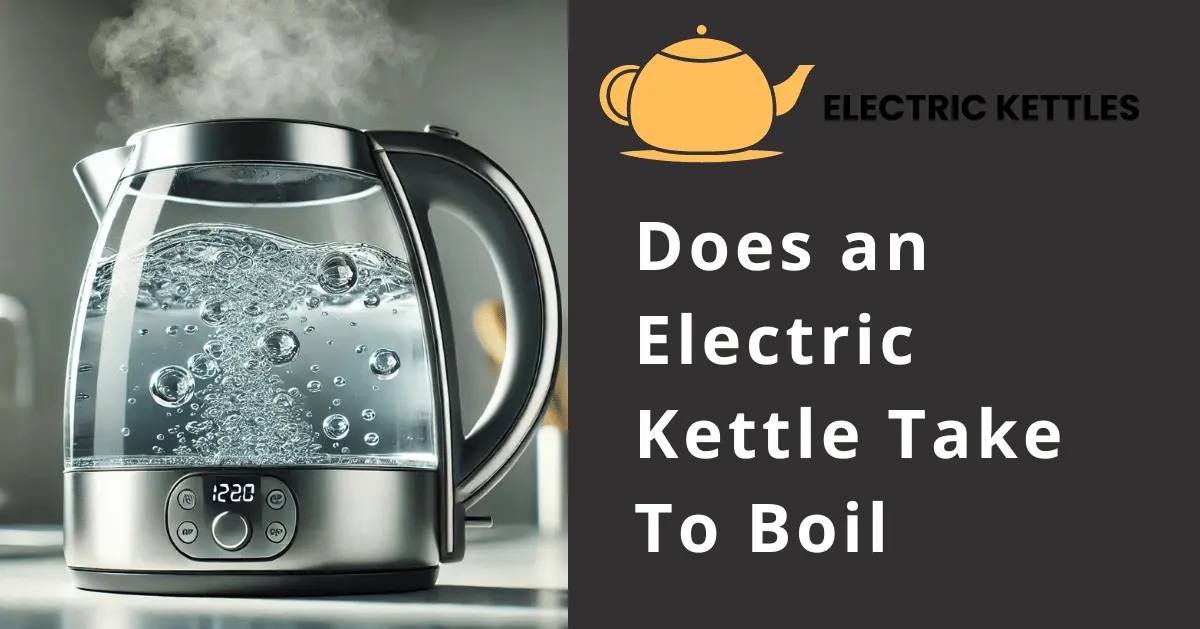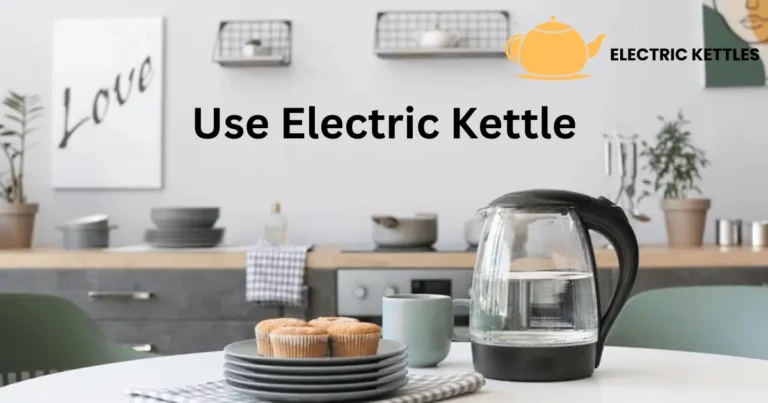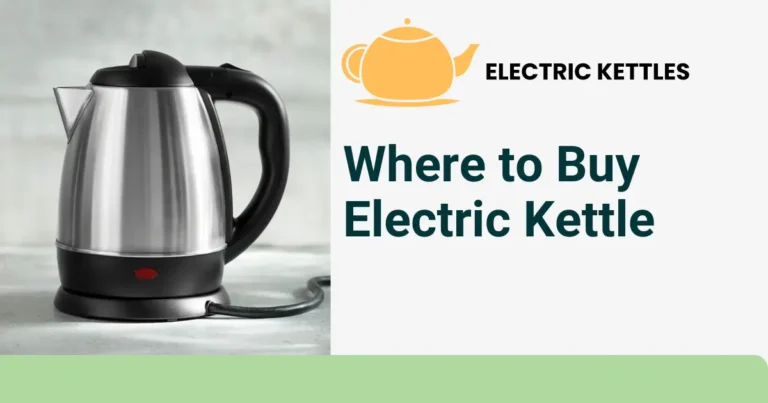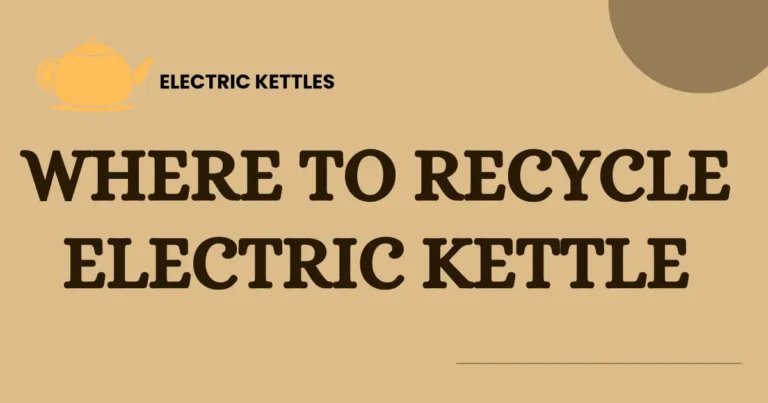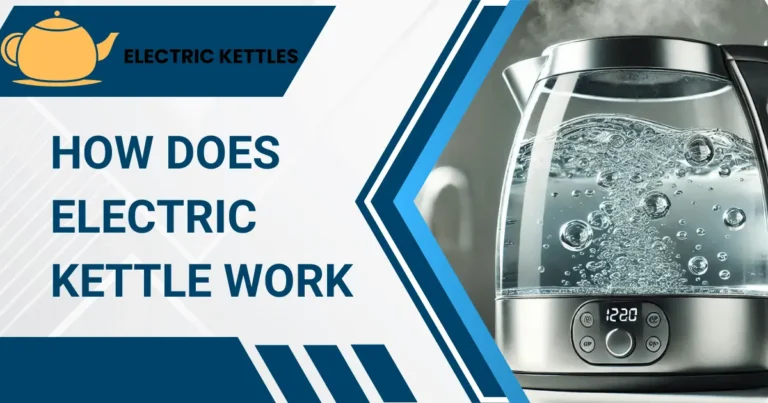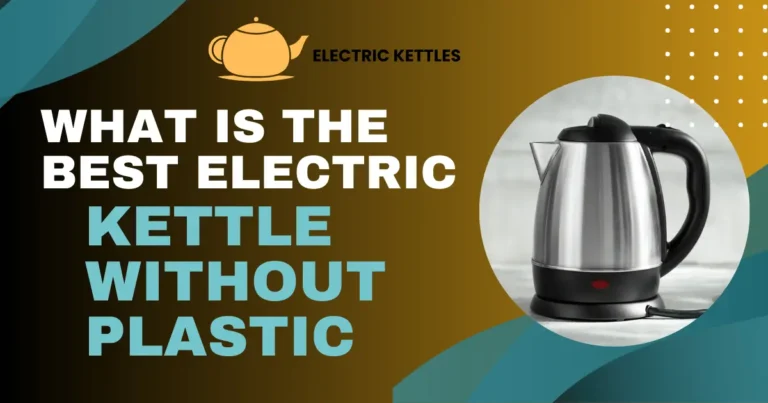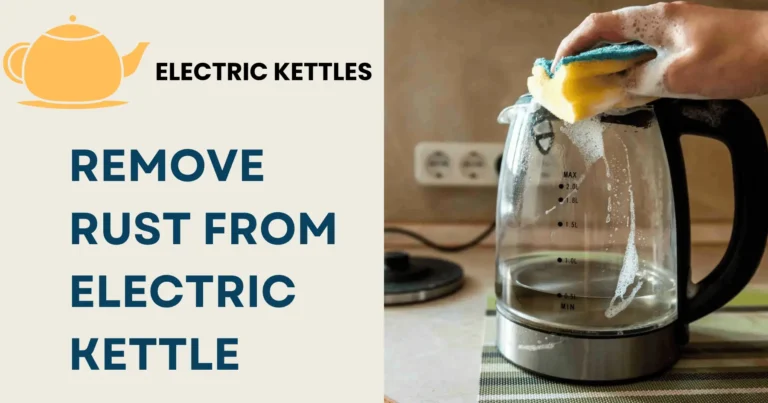How Long Does an Electric Kettle Take To Boil
Boil time affects how quickly you can make hot drinks or prepare meals. A faster boil time means you save time and energy. If you’re in a hurry, a quick boil is very convenient. Knowing how long your electric kettle takes to boil helps you plan your cooking or tea time better.
The amount of water you put in the kettle plays a big role. More water means a longer boil time. The kettle’s power, measured in watts, also affects how fast it boils water. Higher wattage usually means faster boiling.
Table of Contents
Types of Electric Kettles
1. Basic Electric Kettles
Basic electric kettles are straightforward and affordable. They have a simple design and get the job done without extra features. With a standard heating element, they boil water fairly quickly for everyday needs. They are easy to operate, making them a practical choice for most households. These kettles usually have a manual switch or automatic shut-off feature for safety.
2. Fast-Boil Kettles
Fast-boil kettles are designed to heat water much quicker than basic models. They typically have higher wattage, which helps them bring water to a boil faster. Some have special features like rapid boil zones that speed up the process even more. These kettles are ideal if you’re frequently in a hurry. They often come with additional features like keep-warm functions, which can maintain water temperature for a period.
3. Temperature-Controlled Kettles
Temperature-controlled kettles offer precise heating. They let you choose the exact temperature for different beverages or foods. This is useful for brewing specialty teas or coffees that need specific heat levels. These kettles usually have a digital display and multiple temperature settings for accurate results. Some models also allow you to set a specific temperature and hold it for a set time, providing more control over your brewing process.
Factors Influencing Boil Time
- Water Quantity: The amount of water in the kettle greatly impacts boil time. More water takes longer to reach boiling point because the heating element has to work harder. If you only need a small amount of hot water, it’s faster to boil less water. For quicker results, try to boil only the amount you need.
- Kettle Power Rating: The power rating of the kettle, measured in watts, affects how quickly it boils water. Higher wattage means the kettle heats water faster. For example, a kettle with 1500 watts will usually boil water more quickly than one with 1000 watts. If speed is important, look for a kettle with a higher power rating.
- Water Temperature: The starting temperature of the water also affects boiling time. Cold water takes longer to boil compared to room-temperature or hot tap water. If you’re using cold water straight from the tap, expect a longer wait. Pre-heating the water slightly can reduce the overall boil time.
- Altitude and Ambient Temperature: Your home’s altitude and the surrounding temperature can influence how long it takes to boil water. At higher altitudes, water boils at a lower temperature, which can affect cooking and boiling times. Additionally, if the room is cold, it might take slightly longer for the kettle to bring water to a boil.
Average Boil Times
Standard electric kettles usually take about 3 to 5 minutes to boil water. This time can vary depending on the amount of water and the power of the kettle. For a typical 1.7-liter kettle with a power rating of around 1500 watts, you can expect a standard boil time. These kettles are sufficient for most everyday needs.
Fast-boil kettles are designed to reduce boil times significantly. They can typically bring water to a boil in 1.5 to 3 minutes. These models often have higher wattage or special features that speed up the process. If you need hot water quickly, a fast-boil kettle can be a real time-saver.
Temperature-controlled kettles have similar boil times to fast-boil models, usually ranging from 1.5 to 3 minutes for a full kettle. The additional features, like precise temperature settings, do not generally affect the speed of boiling. These kettles provide accurate heat control for specialty drinks while maintaining a fast boil time.
Comparing Electric Kettles to Other Methods
1. Stovetop Kettles
Stovetop kettles usually take longer to boil water compared to electric kettles. On average, it can take about 5 to 8 minutes on a gas or electric stove, depending on the heat setting and the size of the kettle. While they might be slower, stovetop kettles can be used on any heat source and are often considered more traditional.
2. Microwave Heating
Microwaving water is often quicker than using a stovetop kettle but generally slower than most electric kettles. Boiling a cup of water in the microwave usually takes about 1 to 2 minutes. However, microwaves may not heat water evenly, and there’s a risk of superheating, which can cause sudden boiling.
3. Instant Hot Water Dispensers
Instant hot water dispensers are designed to provide hot water on demand and can be faster than electric kettles. They typically deliver hot water almost instantly, though they may have a wait time to heat the water initially. These dispensers are convenient for frequent use and can be integrated into a kitchen sink setup.
FAQs
Q1. How do I know if my electric kettle is efficient?
Check the power rating and boil time of the kettle. A higher wattage, typically 1500 watts or more, usually means quicker boiling. Efficiency can also be judged by how long it takes to bring water to a boil. Look for product reviews or energy ratings for additional insights into efficiency.
Q2. Can I use an electric kettle to boil other liquids besides water?
Most electric kettles are designed specifically for water. Using them to boil other liquids, like milk or soups, can damage the kettle and affect its performance. These substances can leave residues or cause overheating, which might shorten the kettle’s lifespan and impact its safety features.
Q3. Does the type of water affect boiling time?
Yes, the type of water can influence boiling time. Hard water, which contains high levels of minerals, can take longer to boil and may cause mineral buildup in the kettle. This buildup can also affect the kettle’s efficiency and longevity. Using filtered or softened water can help reduce these issues.
Q4. How often should I clean my electric kettle to maintain boil time?
To maintain optimal boil time, clean your kettle regularly. Mineral deposits can accumulate and slow down the boiling process. It’s a good practice to clean the kettle once a month, or more often if you notice buildup. Use a mixture of vinegar and water or a descaling product to remove deposits effectively.
Q5. What is the best way to store an electric kettle?
Store your electric kettle in a dry, cool place and make sure it’s unplugged when not in use. Avoid placing it in areas with high humidity or near heat sources, as this can damage the kettle and its electrical components. Keep the lid open between uses to allow any moisture to evaporate and prevent odors.
Conclusion
Boil times vary based on the kettle type, water quantity, power rating, and starting water temperature. Knowing these factors helps you select a kettle that fits your needs and ensures you get hot water quickly.
Electric kettles are efficient and convenient for boiling water. Fast-boil and temperature-controlled models offer quicker and more precise results, while basic models provide reliable performance for everyday use.
